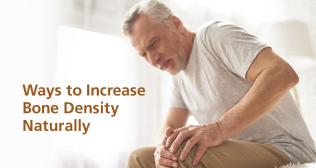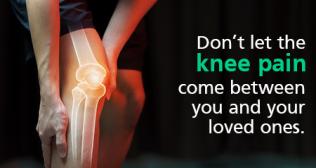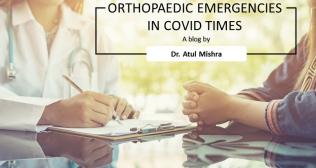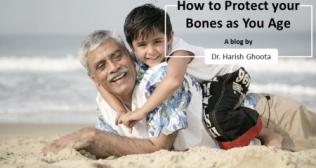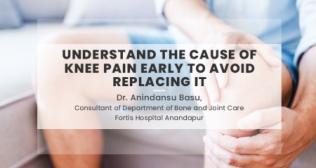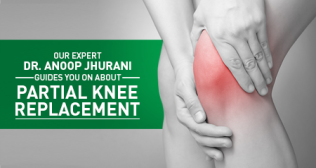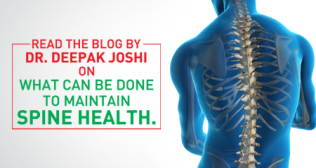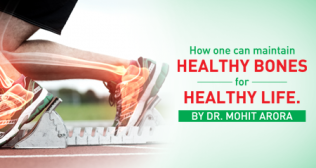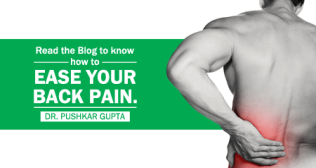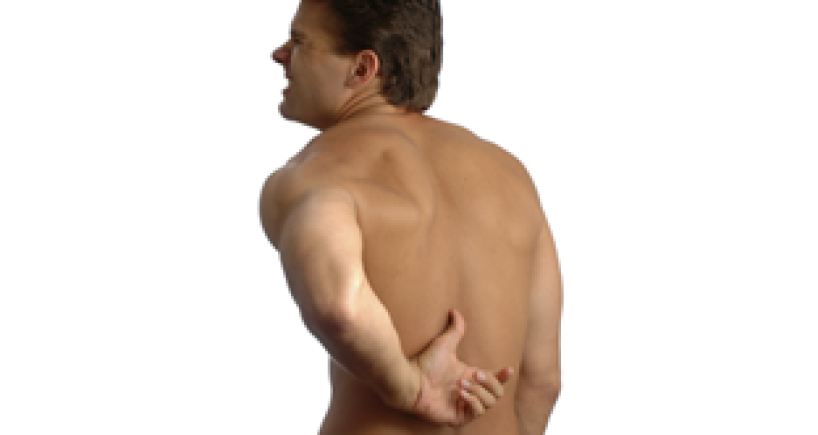
Orthopaedics
Heal Your Slip Disc Problem
Heal Your Slip Disc Problem Jan 14, 2015
 A slipped disc also known as a prolapsed or herniated disc, is where one of the discs in the spine ruptures and the gel inside leaks out causing back pain and pain in other areas of the body. In cases of slipped disc often the sciatic nerve is affected. It is the longest nerve in the body and runs from the back of the pelvis, through the buttocks, down both legs to the feet. If pressure is placed on the sciatic nerve it can cause a lasting pain, numbness and a tingling sensation in one or both the legs.
The spine
The spine consists of 24 individual bones called vertebrae which are stacked on top of each other.In between each vertebra there are protective, circular pads of cartilage (connective tissue) called discs. They have a tough, fibrous case that contains a softer gel-like substance. The discs help to cushion the vertebrae when you move around. The spinal cord is highly sensitive and passes through the middle of the vertebral column. It contains nerve cells and bundles of nerve fibres that connect all parts of the body to the brain.
What causes a slipped disc?
A slipped disc occurs when the outer case of the disc ruptures resulting in the gel inside bulging and protruding out of the disc.Although age is a common factor in many cases, there are a number of other factors that can put increased pressure and strain on your spine.
These include
• Bending awkwardly
• Jobs that involve lot of sitting, particularly driving, lifting of heavy weight
• Smoking
• Being overweight
• Weight-bearing sports, such as weight lifting
• A traumatic injury to your back, such as a fall or car accident
Diagnosing a slipped disc
Your doctor will usually be able to diagnose a slipped disc from your symptoms and medical history. They may also carry out a physical examination to test your reflexes, muscle strength, walking ability and sensation in your limbs.
Straight leg-raising test
In this test the doctor asks you to slowly raise each of your legs while lying flat. One leg at a time is raised, to see if it causes any pain or discomfort in your legs or back.Most people with a slipped disc will not be able to raise their leg more than two thirds of the way up without feeling tingling, numbness and pain.Further tests are not usually required because in most cases the symptoms of a slipped disc settle down within a few weeks.However, if your symptoms do not ease after four to six weeks, further tests like MRI scan, computerised tomography scan or discography may be required to rule out other conditions.
Treating a slipped disc
Treatment usually involves a combination of physical therapy and medication to relieve the pain:
Keeping active- This will help keep your back mobile and speed up your recovery. Any exercise you do should be gentle and not put a strain on your back.
Physiotherapy- Physiotherapists use physical methods, such as massage and manipulation. He will give an individually tailored exercise plan for you to help keep you active, minimise pain and help prevent any further damage to your back.
Medication- You may be prescribed a number of different medicines to help ease any painful symptoms of a slipped disc.
Surgery- It may be considered in severe cases or if the pain continues for longer than six weeks. A surgery is required in about 1 in 10 cases of a slipped disc.
Preventing a slipped disc
Leading a healthy lifestyle and taking a few sensible precautions can help prevent back pain and lower your risk of getting a slipped disc. Apart from that make sure to do regular exercise, use a right technique when lifting heavy objects and always maintain a good posture when sitting and standing.
A slipped disc also known as a prolapsed or herniated disc, is where one of the discs in the spine ruptures and the gel inside leaks out causing back pain and pain in other areas of the body. In cases of slipped disc often the sciatic nerve is affected. It is the longest nerve in the body and runs from the back of the pelvis, through the buttocks, down both legs to the feet. If pressure is placed on the sciatic nerve it can cause a lasting pain, numbness and a tingling sensation in one or both the legs.
The spine
The spine consists of 24 individual bones called vertebrae which are stacked on top of each other.In between each vertebra there are protective, circular pads of cartilage (connective tissue) called discs. They have a tough, fibrous case that contains a softer gel-like substance. The discs help to cushion the vertebrae when you move around. The spinal cord is highly sensitive and passes through the middle of the vertebral column. It contains nerve cells and bundles of nerve fibres that connect all parts of the body to the brain.
What causes a slipped disc?
A slipped disc occurs when the outer case of the disc ruptures resulting in the gel inside bulging and protruding out of the disc.Although age is a common factor in many cases, there are a number of other factors that can put increased pressure and strain on your spine.
These include
• Bending awkwardly
• Jobs that involve lot of sitting, particularly driving, lifting of heavy weight
• Smoking
• Being overweight
• Weight-bearing sports, such as weight lifting
• A traumatic injury to your back, such as a fall or car accident
Diagnosing a slipped disc
Your doctor will usually be able to diagnose a slipped disc from your symptoms and medical history. They may also carry out a physical examination to test your reflexes, muscle strength, walking ability and sensation in your limbs.
Straight leg-raising test
In this test the doctor asks you to slowly raise each of your legs while lying flat. One leg at a time is raised, to see if it causes any pain or discomfort in your legs or back.Most people with a slipped disc will not be able to raise their leg more than two thirds of the way up without feeling tingling, numbness and pain.Further tests are not usually required because in most cases the symptoms of a slipped disc settle down within a few weeks.However, if your symptoms do not ease after four to six weeks, further tests like MRI scan, computerised tomography scan or discography may be required to rule out other conditions.
Treating a slipped disc
Treatment usually involves a combination of physical therapy and medication to relieve the pain:
Keeping active- This will help keep your back mobile and speed up your recovery. Any exercise you do should be gentle and not put a strain on your back.
Physiotherapy- Physiotherapists use physical methods, such as massage and manipulation. He will give an individually tailored exercise plan for you to help keep you active, minimise pain and help prevent any further damage to your back.
Medication- You may be prescribed a number of different medicines to help ease any painful symptoms of a slipped disc.
Surgery- It may be considered in severe cases or if the pain continues for longer than six weeks. A surgery is required in about 1 in 10 cases of a slipped disc.
Preventing a slipped disc
Leading a healthy lifestyle and taking a few sensible precautions can help prevent back pain and lower your risk of getting a slipped disc. Apart from that make sure to do regular exercise, use a right technique when lifting heavy objects and always maintain a good posture when sitting and standing. 






